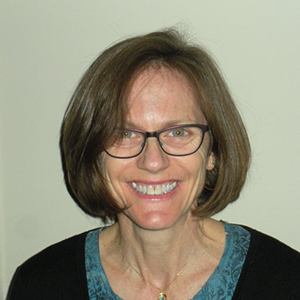Associate Professor of Biology, Retired, College of Arts & Sciences
InROADS Program Director
Faculty Affiliate, Aging Studies Institute
Faculty Affiliate, Center for Aging and Policy Studies
Biography:
Donna L. Korol joined the Department of Biology as an Associate Professor in August 2012. Before coming to SU, Dr. Korol was a faculty member at the University of Illinois at Urbana-Champaign (2000-2012), where she was an Associate Professor in the Departments of Psychology and of Molecular and Integrative Physiology, the Institute for Genomic Biology, and the College of Medicine. She was a dedicated member of the University of Illinois’ Neuroscience program, serving many years on the Executive Committee, Admissions Committee, and as Outreach Coordinator for the program. Throughout her career, Professor Korol participated in many aging initiatives including the University of Arizona Committee on Gerontology, the University of Virginia Center on Aging, and the University of Illinois Initiative on Aging. Her interests in aging extend to the community where she has conducted continuing education colloquia on Geriatrics for Non-Physicians and developed and taught courses for the Osher Lifelong Learning Institute. Education initiatives, public engagement and community outreach indeed define many of Dr. Korol’s extended activities. She has served on the education committee for Society for Behavioral Neuroendocrinology, on NSF grant review panels, and currently sits on the editorial board of three journals. In 2005, Professor Korol won the Hohenboken Teaching Enhancement Award for outstanding departmental teaching and is consistently included in the Illinois students published list of excellent teachers. In 2008, Dr. Korol won the Provost’s Campus Committee on Promotion and Tenure Outstanding Achievement Award.
Professor Korol’s research focuses on the shifts in neural plasticity across the lifespan and under certain conditions such as changes in hormonal status, cognitive activity, and physical fitness. An overarching goal of her work is to understand the molecular and cellular processes that contribute to healthy aging and to pathological brain aging including Parkinson’s disease. Dr. Korol’s laboratory uses multiple levels of analysis and a neural systems approach to study how short- and long-lasting changes in cell signaling cascades, metabolism, and synaptic plasticity that vary by brain region regulate different types of learning and memory. One line of research investigates the modulation of memory system function by stress hormones and reproductive hormones such as estrogens, including those found in botanical dietary supplements. Another research thread examines the shared cellular mechanisms underlying the brain health benefits of physical and mental activity. Recent work from her lab indicates that motor deficits seen in a rat model of Parkinson’s disease are accompanied by enhancements in some forms of memory that could be tapped for therapeutic purposes. She has published dozens of papers and has had funding from NIH, NSF, and private industry. Together, Dr. Korol’s research program has important implications for maintaining brain function across aging in health and disease.
Degree(s):
B.S., University of Wisconsin
Ph.D., University of Virginia

